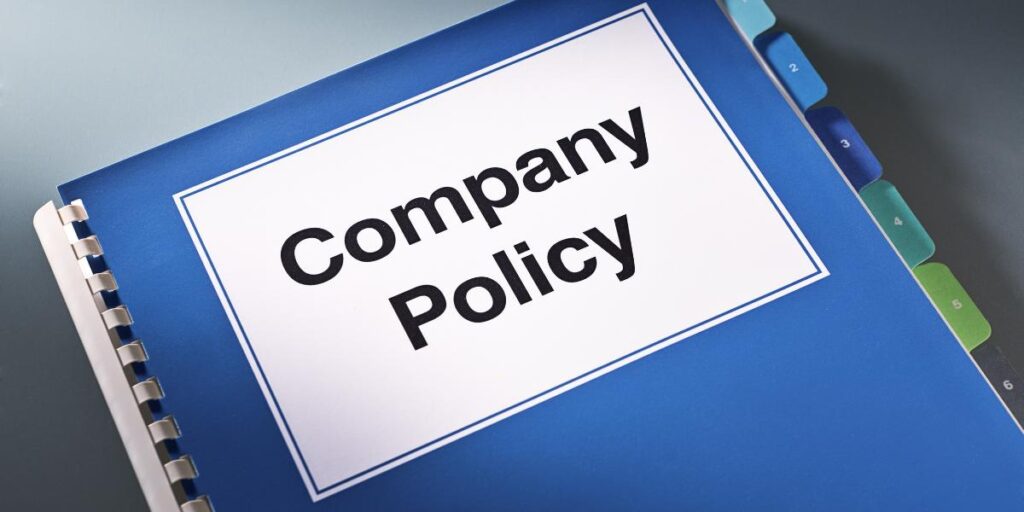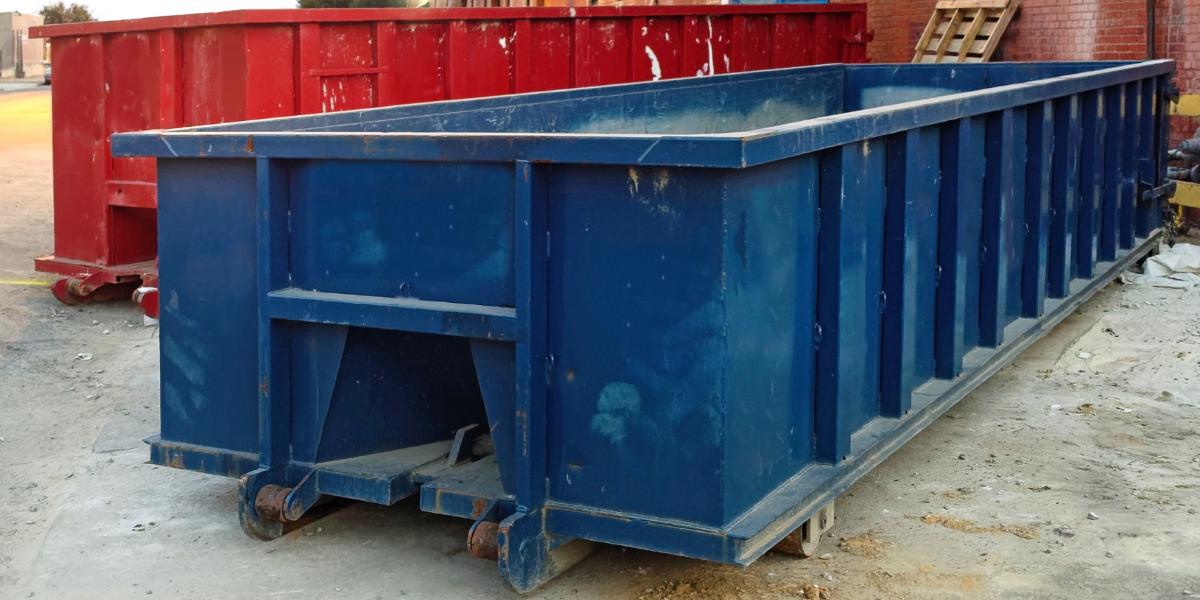Whether you’re tackling a home renovation, a big cleanout, or a major construction project, a dumpster rental is a crucial part of your waste management strategy. But how long should you actually keep that dumpster on-site?
Estimating the right rental period can save you from costly surprises—whether it’s scrambling for last-minute extensions or paying for a dumpster you no longer need.
The secret lies in evaluating your project’s scale, waste volume, and potential setbacks. Here’s a step-by-step guide about How to Determine the Right Dumpster Rental Duration for Your Project?
Assess Your Project’s Scope and Size
Every project is different, and so is the amount of waste it produces. Smaller jobs generate less debris, while bigger undertakings can fill up dumpsters faster than you expect. Here’s a breakdown:
Small Cleanouts (1-3 Days): If you’re cleaning out a garage, attic, or basement, you’ll likely need the dumpster for just a few days—typically 1 to 3 days. A short-term rental should cover it.
Mid-Sized Renovations (7-10 Days): For more substantial home projects like kitchen or bathroom remodels, you’re looking at around a week. The demolition, waste removal, and clean-up phases will keep the dumpster busy.
Large Construction/Demolition (2-4 Weeks): Major construction or demolition projects, like roof replacements or new builds, generate large volumes of waste over extended periods. Expect to need the dumpster for at least 2 to 4 weeks, if not more.
Commercial or Long-Term Projects (Multiple Weeks/Months): For commercial renovations or long-term projects, you may need ongoing dumpster access with regular pickups and replacements.
If you’re in Arlington, explore options on our Arlington dumpster rental page for tailored services.
Estimate Waste Volume
To get an accurate sense of how long you’ll need a dumpster, think about how much waste you’re dealing with. Here’s how to break it down:
Household Debris: For general decluttering, moving, or home cleanouts, assess the volume of large items like furniture and appliances. For example, cleaning out a 2,000 sq. ft. home may require a 20-yard dumpster for about 5-7 days.
Demolition Waste: When you’re tearing down walls, ripping up flooring, or replacing old fixtures, there’s a lot of heavy debris left behind. For a full home demolition, you might need a 30- or 40-yard dumpster, and the project could span over a few weeks.
Yard Waste: Landscaping projects like removing trees, trimming branches, or digging up dirt can quickly fill up a dumpster. For smaller tasks, a week might be enough, but bigger jobs could require up to two weeks.
Heavy Materials (e.g., concrete, bricks): Heavy materials are harder to load and can’t exceed weight limits, meaning they take longer to handle. For these projects, a 10- or 20-yard dumpster may be necessary for 1-2 weeks.
Residents in Denton can find suitable dumpster sizes on our Denton dumpster rental page.

Evaluate Project Phases and Waste Timing
Waste doesn’t pile up all at once. Most projects produce debris in stages, and understanding the flow of waste can help you time your rental more effectively:
Demolition Phase: This is when most of the heavy lifting happens. If you’re gutting a kitchen or knocking down walls, expect a lot of waste in a short time, often requiring 3-5 days just for demolition debris.
Construction Phase: Waste during active construction accumulates more slowly but consistently. Materials like wood scraps, packaging, and other building debris might require a dumpster on-site for an additional 1-2 weeks.
Final Clean-Up: At the tail-end of your project, you’ll likely still need a dumpster for leftover waste, excess materials, and final touches. Budget a few extra days to ensure you can handle any last-minute debris.

Consider Time Needed for Loading and Efficiency
Filling up a dumpster doesn’t happen instantly, especially if you’re doing the heavy lifting yourself. Take into account:
Labor Force: If you have a crew helping, the dumpster will fill faster than if you’re handling it solo. Larger teams can significantly reduce your rental period.
Equipment Access: Access to tools like forklifts or wheelbarrows speeds up the process, reducing the amount of time you need the dumpster. For instance, using a chute system during a roofing project can streamline waste removal.
Work Schedule: Are you working full-time on the project, or only on weekends? If your work is intermittent, you’ll likely need to keep the dumpster longer, even though it’s not in use every day.
Check Local Rules and Restrictions
Don’t forget about local laws and guidelines, which can impact how long you can keep a dumpster on-site:
Permits: If the dumpster is placed on public property, you’ll likely need a permit. These permits are often issued for specific time periods, so make sure your rental aligns with the permit’s terms.
HOA Guidelines: If you live in a community governed by a homeowner’s association (HOA), there might be limits on how long a dumpster can stay in front of your property. Check the rules to avoid any fines.
Waste Disposal Requirements: Some areas have strict regulations about how long certain types of waste—especially hazardous materials—can remain on-site. Make sure your rental complies with local waste disposal rules.
For specifics in Saginaw, refer to our Saginaw dumpster rental page for detailed regulations.

Understand Your Rental Company’s Policies
Dumpster rental companies differ in how they structure rental periods and fees. Knowing the specifics upfront will help you avoid surprises:
Standard Rentals: Many companies offer standard rental periods of 7-10 days. If you expect to need the dumpster for longer, discuss extension options and rates in advance.
Extension Fees: If your project runs over, most companies offer extensions for an additional fee, charged by the day or week. Make sure you know these costs ahead of time.
Early Pickup Options: Some companies offer early pickups if you finish sooner than expected, which can help save you money.
Swap-Out Services: If your project generates ongoing waste, some companies offer a service where they pick up your full dumpster and replace it with an empty one, keeping your project moving smoothly.

Account for Potential Delays
No project is immune to delays, whether it’s due to bad weather, permit issues, or unexpected supply problems. Here are a few common causes:
Weather Delays: Outdoor projects can be delayed by rain, snow, or high winds. Be prepared to extend your rental if the weather takes a turn.
Permit or Inspection Hold-Ups: Construction projects often face delays due to waiting on permits or inspections. Build in extra time just in case.
Material Shortages: If materials for your project arrive late, the entire timeline can shift. Factor in some buffer time for unexpected shipping or supply delays.
Plan for Post-Project Clean-Up
Even after the main work is done, you’ll likely need a few extra days to handle final clean-up tasks:
Leftover Materials: Packaging, unused supplies, and minor debris may still need to be removed.
Final Sweeps: After the project wraps up, you may discover extra waste that didn’t make it into the dumpster. A final pass can ensure nothing gets left behind, so plan for those last-minute sweeps.
FAQs
How do I estimate how long I will need a dumpster?
To estimate your rental period, consider the type of project you’re undertaking, the amount of waste it will generate, and how quickly you’ll be able to fill the dumpster.
Smaller cleanouts may only need 1-3 days, while larger renovations or construction projects could require several weeks or even months.
It’s helpful to break your project into phases—like demolition, construction, and clean-up—each of which may require different amounts of time.
What happens if I need the dumpster for longer than expected?
Most dumpster rental companies offer extensions for an additional fee, which is usually charged per day or week. It’s a good idea to check with your rental provider in advance about their extension policies to avoid unexpected costs.
Be sure to notify them early if you anticipate needing more time.
Can I rent a dumpster for just a day?
Yes, many companies offer short-term rentals for 1-3 days, especially for small cleanout projects or quick renovations.
If you’re confident that your project will be completed within a day or two, this can be a cost-effective option.
How do I factor in potential delays when estimating rental duration?
Projects can be delayed by weather, supply chain issues, or waiting on permits or inspections. To account for delays, it’s smart to add a buffer of a few extra days to your rental period.
This ensures that you won’t need to scramble for a last-minute extension if something goes wrong.
What size dumpster should I choose, and how does that affect rental time?
The size of the dumpster directly impacts how long you’ll need it. Larger dumpsters hold more waste, which can reduce the need for multiple pickups or a longer rental period.
However, larger dumpsters also take longer to fill, especially if you’re doing the work manually. Discuss your project’s needs with the rental company to choose the right size.
Can I extend my dumpster rental mid-project?
Yes, most dumpster rental companies allow you to extend your rental period if needed. Contact your rental provider as soon as you realize you may need more time to ensure availability and avoid extra fees.
Are there restrictions on how long I can keep a dumpster?
Local regulations may limit how long you can keep a dumpster on your property, particularly in residential neighborhoods or if it’s placed on public streets.
Check with your local authorities or homeowner’s association (HOA) to understand any restrictions and permit requirements before renting the dumpster.
Conclusion
Calculating the perfect dumpster rental duration is all about balancing your project’s scope, waste output, and potential hiccups along the way. By thoroughly assessing your needs, you can avoid the stress of extending or overpaying for a dumpster.
Plan carefully, account for any delays, and make sure to factor in any local regulations to ensure your project runs smoothly from start to finish. With the right rental strategy, you’ll save time, money, and avoid any waste management headaches.
For more tailored solutions, explore our local pages, like North Richland Hills or Haslet.
